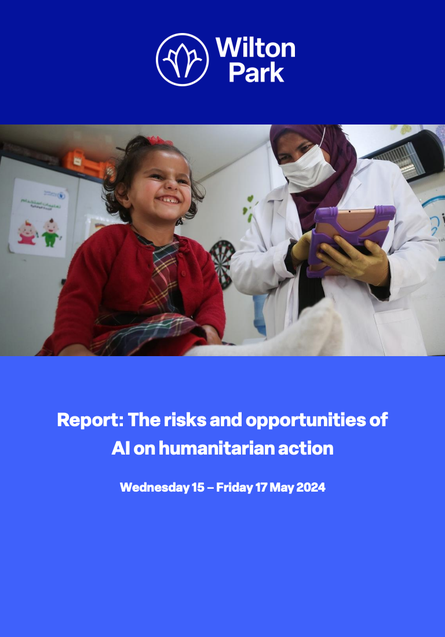
This report is based on a Wilton Park meeting in May 2024, which brought together participants from local NGOs, INGOs, industry, academic institutions, private sector, and governments to discuss the impact of AI in humanitarian contexts, how it can be harnessed, and how potential harms to vulnerable populations could be addressed. Throughout the discussions, various recurrent themes emerged which should help frame forthcoming conversations on AI and humanitarian action
AI carries huge potential for the effective delivery of humanitarian aid to greater numbers of people at a time when humanitarian needs are growing, and resources are unable to meet the current demand. However, the risks and potential harms that AI can bring are cause for alarm including exacerbation of conflict and inequalities, erosion of trust in information, governance processes, and the humanitarian system itself, and undermining of social cohesion. Humanitarians will need to proactively chart the right approach if they are to take advantage of the benefits, while comprehensively addressing the risk of harm.
The following key aspects were highlighted during the discussions and are elaborated on in the report:
- Importance of collaboration, e.g. sharing knowledge and learning about AI applications, and ways of working with tech companies, governments and communities was seen as increasingly essential
- People-centred approach, i.e. ensuring the voice, participation, and empowerment of crisis- and conflict-affected populations in the co-creation of AI (participatory AI) with front line responders, tech developers, local actors, and communities
- Digital public humanitarian infrastructure
- Safety, ethics, and governance
- AI Capacity